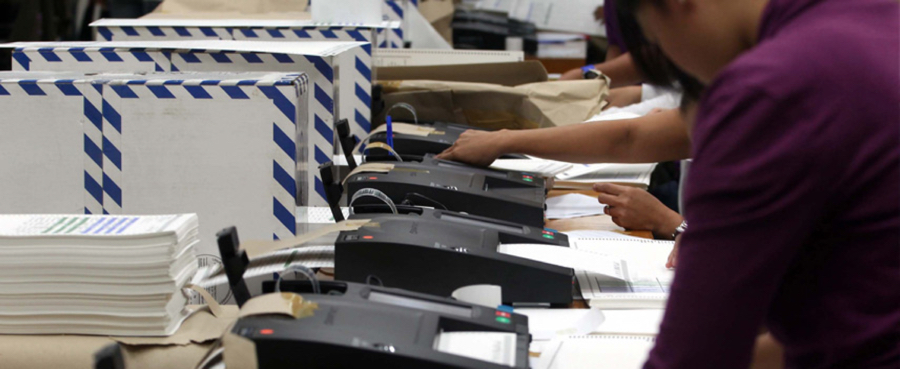
A lawmaker allied with the administration in the House of Representatives has called on the Commission on Elections or Comelec to strictly adhere to the provisions of Republic Act No. 8436 or the “Automated Election System” or AES Law.
In a press statement, Valenzuela City Congressman Win Gatchalian asked the poll body to ensure that the AES Law is implemented to the letter during the 2016 presidential elections.
Gatchalian, a member of the Nationalist People’s Coalition or NPC, issued the call after election watchdogs have begun demanding a return to the manual system of voting and counting for the upcoming national polls two years from now.
Different groups, earlier, alleged widespread glitches in the automated precinct level voting and counting in 2010 and 2013 under Smartmatic, which owns the controversial Precinct Count Optical Scan (PCOS) machines.
“We cannot go back to manual voting and counting at the precinct level. This is like going back to the Dark Ages. What the Comelec should do is to be more transparent and follow the security features of the automated elections system,” Gatchalian said.
The Automated Election System Watch (AES-Watch) and Citizens for Clean and Credible Election (C3E) wanted an automated system that guarantees accuracy, safety, and speed.
One idea is for manual balloting and tallying at precincts, which take only eight then three hours, cost little, and could be watched by voters. Canvassing and transmission, however, would be automated.
But Gatchalian maintained that it is the duty and responsibility of Comelec to correctly implement the letter of the Automated Election System or AES Law, which has five operative principles, namely: free, orderly, honest, peaceful and credible elections.
He pointed out that with the passage of R.A. 8436, Comelec should have more information technology or IT-capable staff.
However, a review of the commission’s staffing pattern showed there are few staff who have knowledge about IT, which is the reason why Comelec outsourced IT-capable personnel to man the computers during elections.
During the 2010 presidential elections, various security features were integrated into the automated system but were not implemented.
One of the programs removed was for the PCOS to inform the voter that the machine has received the ballot followed by designating a voter number on the queue.
“The Comelec also failed to explain why the lamp that determines the veracity of the voter’s signature was removed when this is among the controls which the AES Law provides,” observed Gatchalian.
In the 2013 midterm elections, the design of the ballot took a while before voters, candidates and political parties got to see and test the same. There were lines seen on some electronic copies of the ballot because PCOS machines were kept in dusty and humid stockrooms in Laguna that affected the copier, which could have been avoided if only Smartmatic made an honest-to-goodness post-analysis of the 2010 and 2013 elections.
The AES Law likewise provided for the period in terms of testing the machines, for dry runs on transmissions, for mock polls, for the production of ballots and the number of ballots per precinct that should be on hand in case of replacement. And yet in 2013, there were allegations of excess ballots being printed.
“Comelec should stick to the provisions of the law. We have encountered enough problems during the 2010 and 2013 elections which could very well serve as reminders that the AES Law must be implemented correctly by the Commission on Elections,” said Gatchalian.
Another duty where the Comelec is quite remiss is the conduct of forensic audit after every election cycle as this will ensure that the integrity of the automated system is not being tampered with.
“Comelec cannot afford to rest or hibernate during periods in-between elections as there are many things to do to bring the commission to a level of efficiency and performance that cannot be realized in the four months of preparation before the scheduled election,” Gatchalian concluded. (Monica Cantilero)


